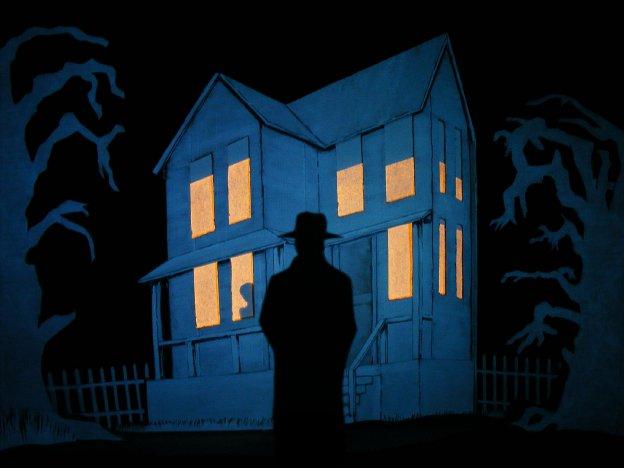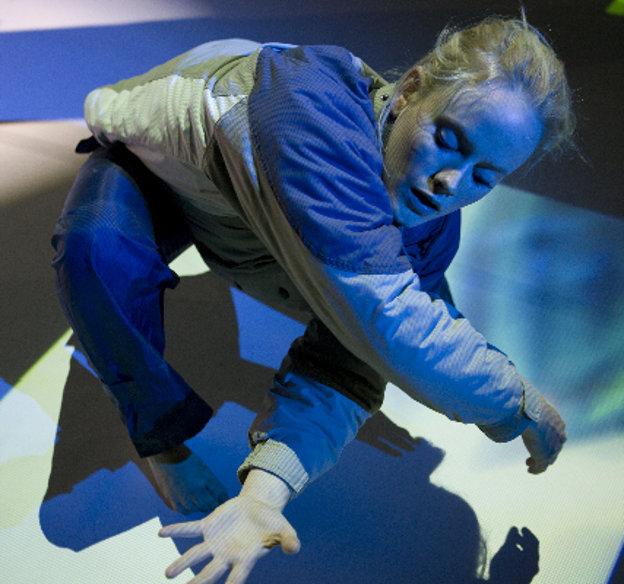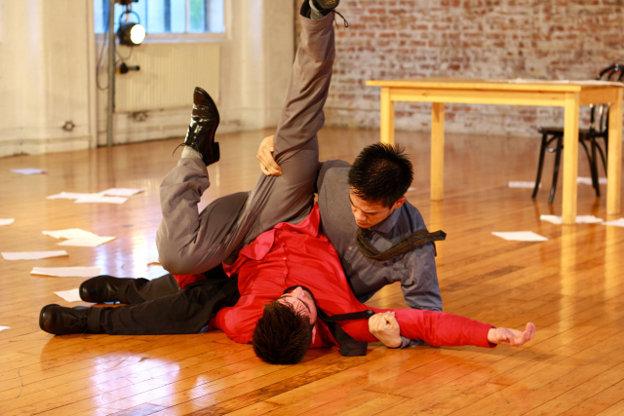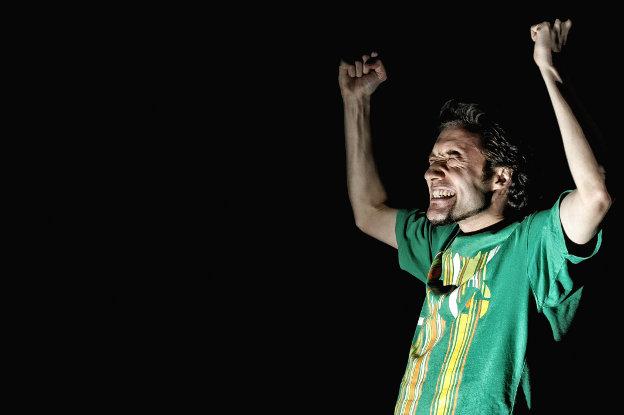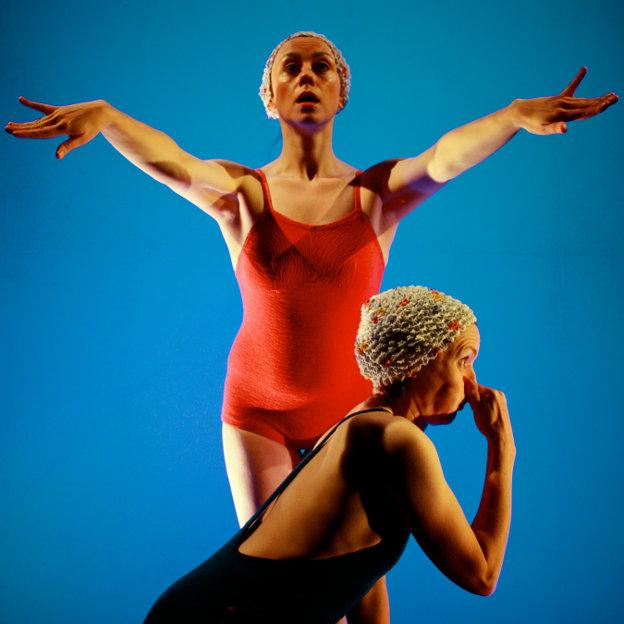The Lonely One is a true example of a simple narrative beautifully executed with real heart and intelligence. Based on an extract from Ray Bradbury’sDandelion Wine, the typically lyrical dialogue immediately evokes a sense of place, transporting us into the heat of a suburban American summer’s night. The ‘lonely one’ himself is a shadowy and almost mystical figure, representing fear and death. A string of female murders attributed to him have taken place in ‘Green Town’, bringing tension, rumours and a fear of strangers that prompts residents to stay in at night with their doors firmly bolted. Our protagonist is Lavinia Nebbs, a feisty ‘spinster’ who refuses to believe the gossips and insists on walking home at night through a dark ravine.
So much of the tale’s imagery is linked with light and perception, illustrated effectively through Rachel Warr’s direction; the excellent stagecraft includes torches symbolising fireflies, miniature houses which become projection screens for detailed shadow puppetry, and hand-held lanterns which light then distort the frightening ravine, all operated by a well-honed ensemble. Characterisation is consistently excellent from the whole cast, and even the smallest of movements are performed with clear focus and intention.
In this taut atmosphere, the expectation that something terrible is waiting is unavoidable. As Bradbury writes: ‘Death was the Lonely One, unseen, walking and standing behind trees, waiting in the country to come in, once or twice a year, to this town, to these streets, to these many places where there was little light.’ The tension mounts further as Lavinia makes her late night journey home, but unfortunately is disrupted a little at the crucial point by sound overspilling from a neighbouring studio. Nonetheless, the production’s resolution (which I won’t give away!) is pleasing and well delivered, and the atmosphere and images created certainly linger on the walk home!

